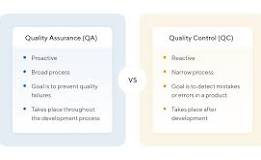The Power of Customized Software Solutions
In today’s fast-paced and competitive business environment, off-the-shelf software solutions may not always meet the unique needs and requirements of every organization. This is where customized software comes into play, offering tailored solutions that can address specific challenges and drive operational efficiency.
Customized software is designed and developed to align perfectly with a company’s workflows, processes, and goals. By working closely with a team of experienced developers and IT professionals, businesses can create software applications that are tailor-made to fit their exact specifications.
One of the key advantages of customized software is its scalability. As businesses grow and evolve, their software needs may change as well. Customized solutions can be easily adapted and expanded to accommodate new requirements, ensuring that the software remains relevant and effective in the long run.
Moreover, customized software offers a higher level of security compared to off-the-shelf solutions. With custom-built applications, companies have greater control over data protection measures and can implement robust security features tailored to their specific industry regulations and compliance standards.
Another benefit of customized software is its potential for integration with existing systems and third-party applications. By seamlessly integrating new software with legacy systems or other tools used by the organization, businesses can streamline processes, improve data flow, and enhance overall productivity.
Ultimately, investing in customized software can lead to cost savings in the long term. While off-the-shelf solutions may come with lower upfront costs, custom-built software offers a higher return on investment by delivering greater efficiency, improved performance, and enhanced user experience tailored to the organization’s unique requirements.
In conclusion, customized software solutions empower businesses to optimize their operations, boost productivity, enhance security measures, and stay ahead of the competition in today’s digital landscape. By leveraging the power of customization, organizations can unlock new opportunities for growth and success.
Understanding Customized Software: Key FAQs and Insights
- How can application software be customised?
- How to create customized software?
- What is the difference between custom written and customized software?
- What is customized software with example?
- What are customized programs?
How can application software be customised?
Application software can be customized through a variety of methods to meet specific requirements and address unique business needs. One common approach is to work closely with experienced software developers who can tailor the application’s features, functionality, and user interface to align with the organization’s workflows and objectives. Customization may involve modifying existing code, integrating additional modules or plugins, configuring settings, or even building entirely new components from scratch. By leveraging the flexibility and scalability of application software development frameworks, businesses can achieve a high degree of customization that enables them to optimize processes, improve efficiency, and enhance overall performance.
How to create customized software?
Creating customized software involves a strategic process that begins with understanding the unique requirements and objectives of the organization. The first step is to conduct a thorough analysis of the business processes, workflows, and challenges that the software solution aims to address. Collaborating closely with experienced software developers, designers, and stakeholders, a detailed project plan is crafted to outline the project scope, features, timeline, and budget. Through iterative design, development, testing, and feedback cycles, the customized software is built to align perfectly with the organization’s needs while ensuring scalability, security, and seamless integration with existing systems. Effective communication and collaboration throughout the development process are key to delivering a tailored software solution that drives operational efficiency and business growth.
What is the difference between custom written and customized software?
When discussing customized software, the difference between custom-written and customized software lies in their development processes. Custom-written software refers to applications that are built from scratch, tailored to specific requirements and functionalities outlined by the client. On the other hand, customized software involves modifying existing off-the-shelf solutions to better suit the unique needs of a business. While custom-written software offers complete control over every aspect of the application’s design and functionality, customized software provides a more cost-effective and time-efficient solution by adapting pre-existing software to align with specific requirements. Both approaches offer benefits depending on the complexity and scope of the project, allowing businesses to choose the most suitable option based on their needs and resources.
What is customized software with example?
Customized software refers to tailor-made applications designed to meet specific requirements of a particular organization or individual. Unlike off-the-shelf software that offers generic solutions, customized software is developed to address unique needs and challenges, providing a more personalized and efficient solution. For example, a retail company may opt for customized inventory management software that integrates seamlessly with their existing sales system, automates restocking processes based on real-time sales data, and generates custom reports tailored to their business operations. This level of customization ensures that the software aligns perfectly with the company’s workflows and enhances overall efficiency and productivity.
What are customized programs?
Customized programs refer to software solutions that are specifically tailored to meet the unique needs and requirements of a particular individual or organization. Unlike off-the-shelf software that offers a one-size-fits-all approach, customized programs are designed and developed with careful consideration of the user’s specific workflows, processes, and objectives. By collaborating with experienced developers and IT professionals, businesses can create customized programs that address their distinct challenges, enhance operational efficiency, and provide a competitive edge in their industry. These bespoke solutions offer scalability, security, integration capabilities, and cost-effectiveness, making them a valuable investment for organizations looking to optimize their software infrastructure.



